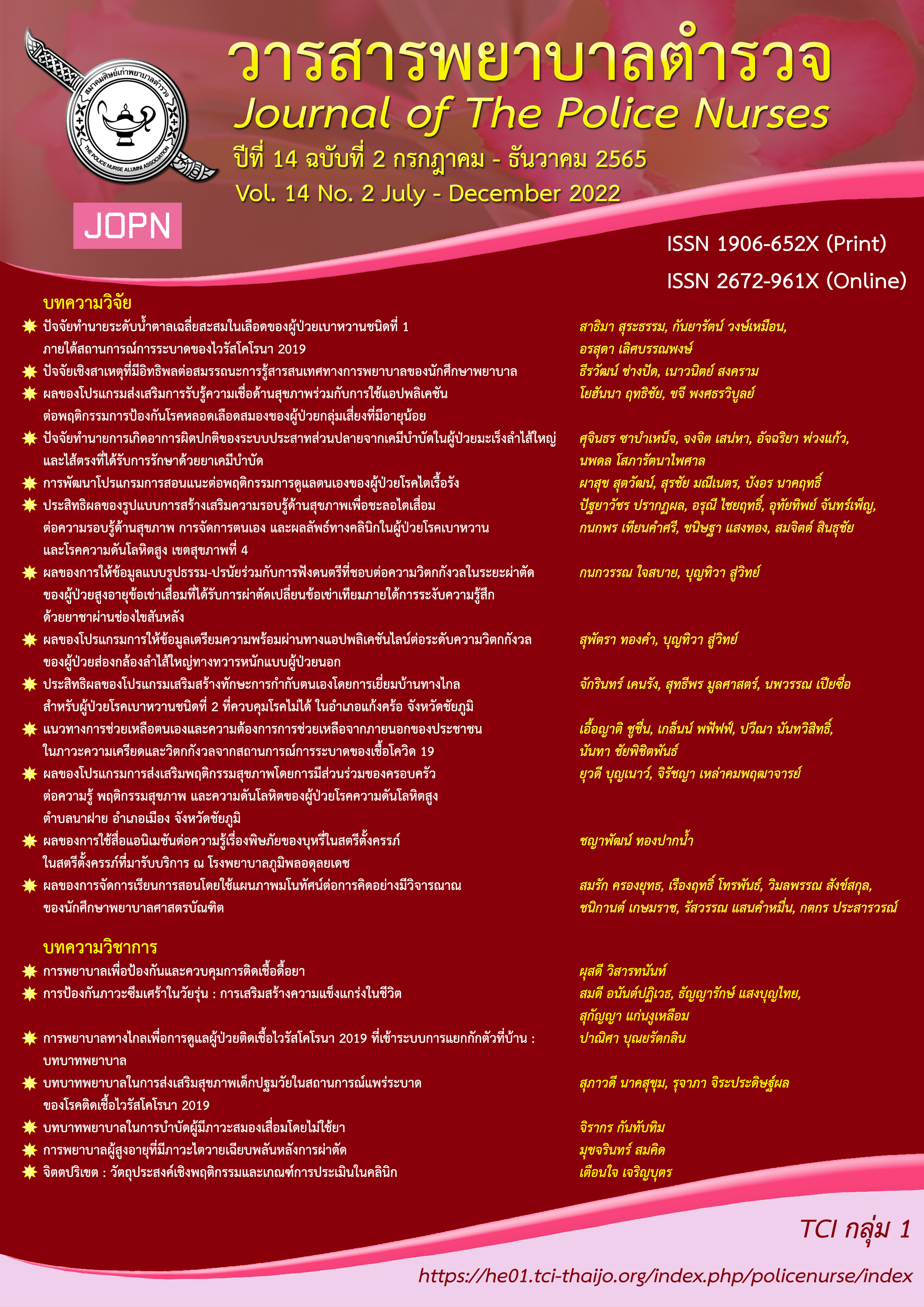PREVENTION OF ADOLESCENT DEPRESSION: STRENGTHENING RESILIENCE
Keywords:
prevention of adolescent depression, strengthening resilienceAbstract
Depression is a major mental health problem among adolescents worldwide. It is a mood disorder that affects adolescents, their families, and society. This article aims to analyze and create the guidelines to prevent depression by strengthening the resilience of adolescents who are extremely and emotionally sensitive. Additionally, they are at high risk for depression and suicidal behavior. Prevention of depression in adolescents is; therefore, urgent and necessary. At present, the prevention of depression in adolescents is performed among three groups: normal adolescents, high-risk adolescents and adolescents with depression. There are several different approaches to preventing depression in adolescents. However, an effective way to prevent depression in adolescents is to strengthen resilience. This is a significant factor that is negatively related to depression in adolescents. Resilience has three sub-components: I have, I am, and I can. The sub-components of resilience relate to five positive factors: interpersonal relationship, executive functions, sense of coherence, mindfulness, and problem-solving skills. These guidelines were developed from the analysis and synthesis of relevant knowledge. This will be the fundamental knowledge for preventing the onset of depression or reducing the severity of depression. It is a challenging strategy for preventing future adolescent depression.
Downloads
References
Akwarangkoon, S. (Ed.). (2016). Psychiatric and mental health nursing: Science and art for practice 1. Bangkok: Three Lada.
Christman, S. K. (2019). Using sense of coherence to understand suicidality among American Indian and Alaska Native College Students. University of Texas, Austin.
Dong, Y., Dang, L., Li, S., & Yang, X. (2021). Effects of facets of mindfulness on college adjustment among first year Chinese college students: The mediating role of resilience. Psychology Research and Behavior Management, 14, 1101-1109.
Grotberg, E. H. (1997). The international resilience project: Finding from the research and the effectiveness of interventions. Retrieved from https://files.eric.ed.gov/fulltext/ED419584.pdf
Grotberg, E. H. (2003). Resilience for today: Gaining strength from adversities. Connecticut: Praeger.
Institute for Population and Social Research. (2020). 10 outstanding health situations. Nakhon Pathom: Institute for Population and Social Research, Mahidol University.
Jirathikrengkrai, C., Vongsirimas, N., Thanoi, W., & Phetrasuwan, S. (2021). Factors in predicting psychological well-being in late adolescents. Nursing Science Journal of Thailand, 39(2), 77-89.
Juengsiragulwit, D., Thongthammarat, Y., Praneetpolgrung, P., Choompudsa, P., & Tantipiwattanasakul, P. (2015). The efficacy of group mindfulness-based cognitive therapy in prevention of youth depression: A pilot study. Journal of Mental Health of Thailand, 23(3), 143-153.
Kedthongma, W. (2022). The relationship between life experiences, sense of coherence, coping strategies, and depressive severity of suicide attempt survivors (Master of nursing science program, psychaitric and mental health nursing). Faculty of Nursing, Mahasarakham University, Mahasarakham.
Ketman, P. (2020). Promotion of resilience in children and adolescents. Retrieved from https://drpanom.wordpress.com/2020/07/17/promotion-of-resilience-in-children-and-adolescents-2/
Klongdee, K., & Chaniang, S. (2019). Factors predicting depression in nursing students at Boromarajonani College of Nursing Nakhonphanom, Nakhonphanom University. Journal of The Police Nurses, 13(1), 148-157.
Kongprapun, N. (2020). Factors influencing adolescent depression case study: Rajamangala University of Technology Suvarnabhumi. Journal of Social Science and Buddhistic Anthropology, 5(11), 302-315.
Lortrakul, M., & Sukanich, P. (Eds.). (2015). Ramathibodi essential psychiatry (4th ed.). Bangkok: Department of Psychiatric, Faculty of Medicine, Ramathibodi Hospital, Mahidol University.
Mekkhachorn, N. (2021). Resilience: A new approach of mental empowerment for dealing with current life crises. Journal of Psychology Kasem Bundit University, 11(2), 1-9.
Office of the Health Promotion Foundation (ThaiHealth). (2020). Brain skill development manual. Retrieved from https://www.thaihealth.or.th/Books/618/mobile/index.html
Panyawong, P., & Pavasuthipaisit, C. (2020). Prevalence of depression and suicide risk in Thai adolescents: A survey in schools from 13 public health region. Journal of Mental Health of Thailand, 28(2), 136-149.
Phimphakarn, K. (2019). A strengthening of resilience in patients with major depressive disorder. Journal of Health Education, 42(2), 218-225.
Shain, B., & AAP committee on adolescence. (2016). Suicide and suicide attempts in adolescents. Pediatrics, 138, e20161420. https://doi.org/10.1542/peds.2016-1420
Seehiran, A., Yuthatrai, P., Kasornsamut, P., & Thanoi, W. (Eds.). (2018). Psychiatric nursing. Bangkok.
Sutton, J. M. (2007). Prevention of depression in youth: A qualitative review and future suggestions. Clinical Psychology Review, 27, 552-571.
Vatanasin, D. (2016). Prevention of adolescent depression: From evidence to practice. The Journal of Faculty of Nursing Burapha University, 24(1),
-12.
Vatanasin, D., Chupan, S., Hengudomsub, P., Vatanasin, S., & Jantarapakdee, R. (2020). The effect of social problem-solving skill enhancement on depression among nursing students. The Journal of Psychiatric Nursing and Mental Health, 34(1), 86-102.
World Health Organization (WHO), Regional Office for South-East Asia. (2017). Mental health status of adolescents in South-East Asia: Evidence for action.
World Health Organization. Regional Office for South-East Asia. Retrieved from https://apps.who.int/iris/handle/10665/254982
WHO. (2021). Depression. Retrieved from https://www.who.int/news-room/factsheets/detail/depression
Yang, F., & Oka, T. (2022). The role of mindfulness and attachment security in facilitating resilience. BMC Psychology, 10(69), 1-10. https://doi.org/10.1186/s40359-022-00772-1
Downloads
Published
How to Cite
Issue
Section
License
Copyright (c) 2022 JOURNAL OF THE POLICE NURSES

This work is licensed under a Creative Commons Attribution-NonCommercial-NoDerivatives 4.0 International License.
ผลงานที่ได้ตีพิมพ์แล้วจะเป็นลิขสิทธิ์ของวารสารพยาบาลตำรวจ















